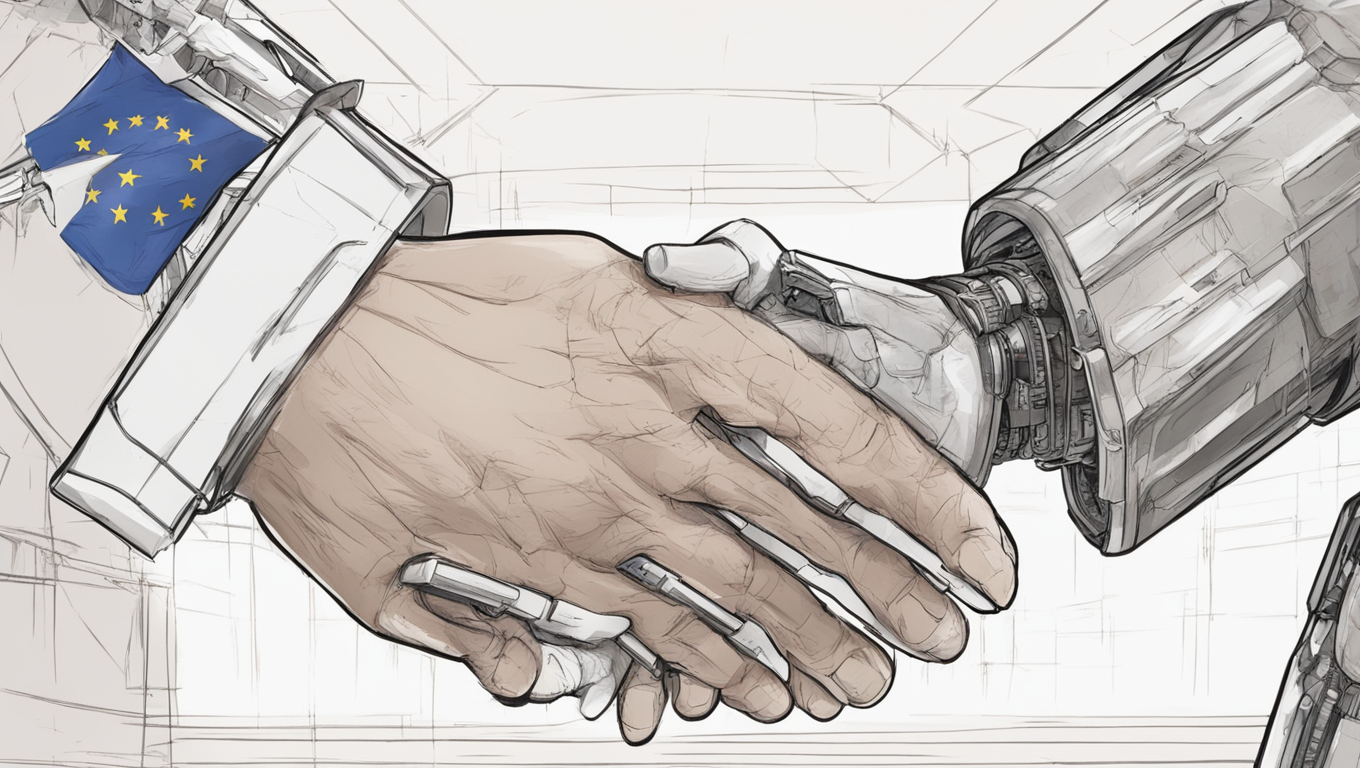Navigating the European AI Act: The World’s First Legislation on Artificial Intelligence
Brussels, February 13, 2024 – In a historic move, European lawmakers have ratified a provisional agreement on groundbreaking artificial intelligence rules. The legislative assembly is set to vote in April, which will establish the world’s first legislation on AI. The AI Act, as it is known, aims to create clear guidelines for the use of this transformative technology across a wide range of industries, including banking, automotive, electronics, aviation, security, and law enforcement.
The AI Act will not only regulate the use of AI but also address the emerging field of foundation models or generative AI, such as Microsoft-backed OpenAI’s sophisticated system. These models are trained on vast amounts of data and have the ability to learn from new information to perform a variety of tasks.
“AI Act takes a step forward: MEPs in @EP_Justice & @EP_SingleMarket have endorsed the provisional agreement on an Artificial Intelligence Act that ensures safety and complies with fundamental rights,” announced one of the two European Parliament committees on X.
Earlier this month, EU countries expressed their support for the legislation after France secured concessions to reduce the administrative burden on high-risk AI systems and offer enhanced protection for business secrets.
Despite this progress, major technology companies remain cautious, expressing concerns about the ambiguous wording of certain requirements and the potential impact on innovation.
The introduction of the AI Act marks a major milestone in the governance of AI, setting a precedent for countries around the world. The legislation seeks to strike a delicate balance between fostering innovation, protecting fundamental rights, and addressing potential risks associated with AI.
It is no surprise that the European Union is at the forefront of such regulation. The region has a strong tradition of prioritizing consumer protection and privacy. This legislation represents another significant step in upholding these values while embracing advancements in technology.
“By implementing this landmark legislation, Europe is sending a clear message that AI must be developed responsibly and in alignment with fundamental rights,” says Professor Maria Andersson, an expert in AI ethics at Lund University. “This legislation will provide legal clarity and guidance to businesses, ensuring that AI is used ethically and effectively.”
The AI Act introduces a unique regulatory framework that distinguishes between four categories of AI systems—unacceptable risk, high risk, limited risk, and minimal risk. This classification system is essential to understanding the specific requirements and obligations for each category.
Unacceptable risk refers to AI applications that are considered an immediate threat to individuals' health, safety, or fundamental rights. These applications will be banned outright under the legislation.
High-risk AI systems, on the other hand, will require stricter oversight and compliance measures. These include AI technologies used in critical infrastructure, such as transportation and energy, as well as those utilized in areas like healthcare, education, and law enforcement. The legislation will mandate thorough risk assessments, transparency, and human oversight for high-risk AI systems.
Limited-risk and minimal-risk AI systems will be subject to fewer regulatory requirements. However, the legislation still emphasizes the importance of transparency and accountability in these systems.
The AI Act also addresses concerns surrounding the accountability of AI system providers. It introduces a framework that allows individuals to seek compensation for harm caused by AI systems. This will encourage companies to prioritize the safety and reliability of their AI technology.
As the regulatory landscape for AI continues to evolve, it is crucial to strike the right balance between regulation and innovation. The European Union’s AI Act represents an important milestone in achieving this balance, ensuring that AI is developed and deployed responsibly while safeguarding fundamental rights. With the world’s first legislation on AI on the horizon, the global community will closely observe the outcomes and potentially adopt similar measures.
As Professor Andersson concludes, “The European Union’s leadership in AI regulation sets the example for the rest of the world. By navigating the complexities surrounding AI, we can harness its vast potential to drive progress while preserving our core values as a society.”





Use the share button below if you liked it.